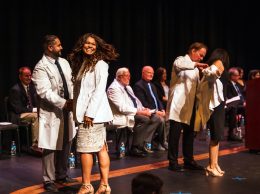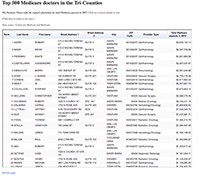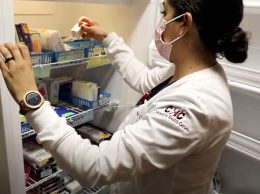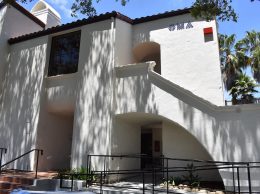The eyes have it when it comes to Medicare payouts
IN THIS ARTICLE
- Central Coast Topic
- Marlize van Romburgh Author
By Marlize van Romburgh Monday, April 21st, 2014
Of the 3,286 individual doctors in the Tri-Counties who billed Medicare for reimbursements in 2012, fewer than 1 percent received more than $1 million from the federal program.
A Business Times analysis of recently released data from the Centers for Medicare and Medicaid Services reveals that specialists in fields such as ophthalmology, hematology, oncology and vascular surgery make up the bulk of the doctors in the region who received million-dollar-plus reimbursements.
That’s in line with national trends, which show that of the 344 doctors and health care providers in the country who received more than $3 million from Medicare in 2012, 43 percent were ophthalmologists. Nationwide, the next-highest billed specialties were hematology and oncology.
Four ophthalmologists with California Retina Consultants in Santa Barbara led the list of top-billing doctors in the Tri-Counties, receiving an average of $4.2 million in Medicare reimbursements each in 2012. [Click here see a table with the 500 largest reimbursement recipients].
At the top of the list was Dr. Robert Avery, an ophthalmologist with California Retina Consultants who received $5.6 million from Medicare in 2012. Avery’s office did not return multiple requests for comment.
Twenty-seven physicians in the Tri-Counties received more than $1 million in Medicare reimbursements in 2012, and the top 11 doctors received more than $2 million each.
The nationwide Medicare data includes information about billing and payment details for about 880,000 U.S. physicians who were paid $77 billion in 2012 for services provided to patients as part of the Medicare Part B fee-for-service program.
The Obama administration released the massive trove of figures on April 9, saying the information would lead to greater transparency and detection of Medicare fraud. “Currently, consumers have limited information about how physicians and other health care professionals practice medicine,” then-Secretary of Health and Human Services Kathleen Sebelius said in a statement. “This data will help fill that gap by offering insight into the Medicare portion of a physician’s practice. The data released today afford researchers, policymakers and the public a new window into health care spending and physician practice patterns.” (Sebelius resigned on April 10, six months after the botched rollout of the Healthcare.gov website).
But others caution that the Medicare data should be handled with caution — large dollar figures aren’t necessarily red flags for malfeasance. For example, some doctors only work with Medicare patients, which could make their Medicare payouts seem outsized compared with peers who also see privately insured patients.
And treatments such as eye surgery or cancer care are reimbursed at higher rates than routine office visits.
In some cases, multiple professionals in a practice bill under one physician’s identification number — a practice discouraged by Medicare officials — further distorting data for individual doctors.
Many physician groups have been hostile to the data dump. “The release of this kind of financial and service-related data might feel threatening to some family physicians,” American Academy of Family Physicians President Reid Blackwelder said in a statement. “That’s understandable given that physicians had no opportunity to review or correct data before it was released and, currently, have no mechanism to appeal inaccuracies.”
But, Blackwelder said, the data release will also give doctors a chance to examine why some of their colleagues might be getting larger payouts. “Some initial media reports have shown the wide variation in total payments made among various medical specialties. When that data set is further mined and studied, it won’t be difficult to make the case — using hard evidence — that family physicians provide comprehensive and time-intensive health care to their patients and, yet, are near the bottom of the list in terms of payment for those services,” he said.
Fast facts:
• Individual physicians in the Tri-Counties collectively received $376.4 million in Medicare reimbursements in 2012.
• Out of the 3,286 doctors in the Tri-Counties who received Medicare payouts, 11 got more than $2 million. Twenty-seven received more than $1 million.
• Of the 10 top-billing doctors in the region in 2012, seven practice ophthalmology. That’s in line with national trends, which show that of the 344 doctors and health care providers in the country who received more than $3 million from Medicare in 2012, 43 percent were ophthalmologists.
• The average Medicare payment among doctors in the region was $114,556. But reimbursements vary widely by specialty. Family physicians, for example, received an average reimbursement of $60,336. Ophthalmologists received on average $574,323.
Related Articles
 Friday, September 16th, 2022
Friday, September 16th, 2022










